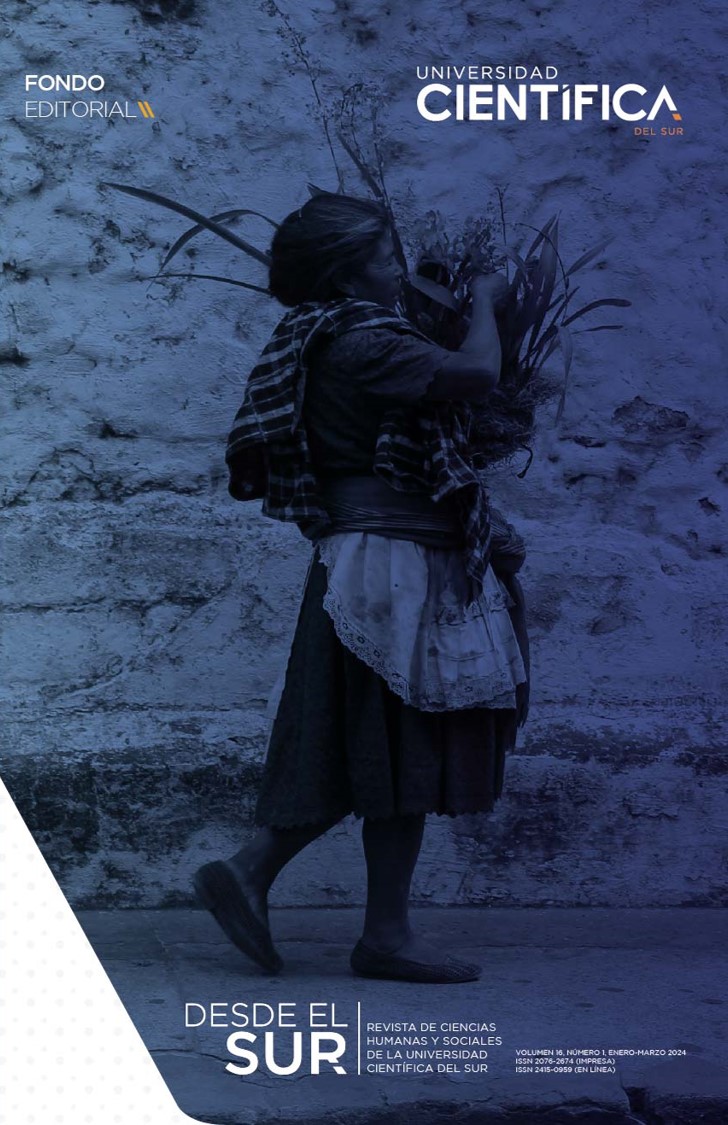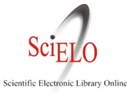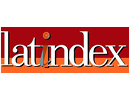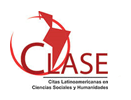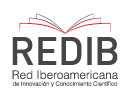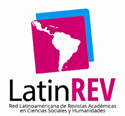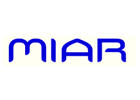Education and qualitative research
approaches to educational practice as a research object
DOI:
https://doi.org/10.21142/DES-1601-2024-0016Keywords:
Epistemology, Educational research, Qualitative research, Educational practiceAbstract
This essay reflects on the relationship between qualitative research and the study of educational practice. Based on a review and analysis of scientific literature, it is argued that the need to study social practices, especially subaltern ones, is the context of legitimation of qualitative research in the social sciences and this allows us to identify a series of epistemological motives that constitute this approach. Educational practices are problematized from the notion of field proposed by Bourdieu. As central conclusions, the theoretical and epistemological implications of approaching the practices of educational agents from a qualitative approach are argued. The need to strengthen the epistemological, theoretical and ethical-political discussion of research on educational practices is emphasized, and a set of questions that could guide the study of teachers’ reality are problematized.
Downloads
References
Aguerrondo, I. (2014). Planificación educativa y complejidad: gestión de las reformas educativas. Cadernos de Pesquisa, 44(153), 548-578. https://doi.org/10.1590/198053142910
Archenti, N. y Piovani, J. (2007). Los debates metodológicos contemporáneos. A. Marradi, N. Archenti y J. Piovani, Metodología de las ciencias sociales (pp. 29-44). Emecé.
Archer, M. S. (2010). Morphogenesis versus structuration: on combining structure and action 1. The British Journal of Sociology, 61, 225-252.
Archer, M. S. (1995). Realist social theory: The morphogenetic approach. Cambridge University Press.
Ávila Francés, M. (2005). Socialización, educación y reproducción cultural: Bordieu y Bernstein. Revista Interuniversitaria de Formación del Profesorado, 19(1), 159-174. https://www.redalyc.org/articulo.oa?id=27419109
Berger, R. (2015). Now I see it, now I don’t: researcher’s position and reflexivity in qualitative research. Qualitative Research, 15(2), 219-234.
Birgin, A. (Ed.). (2012). Más allá de la capacitación: debates acerca de la formación de los docentes en ejercicio. Paidós.
Bourdieu, P. (2016). La distinción: criterio y bases sociales del gusto. Taurus.
Bourdieu, P. (1997a). Razones prácticas. Sobre la teoría de la acción. Anagrama.
Bourdieu, P. (1997b). Los usos sociales de la ciencia. Los campos como microcosmos relativamente autónomos. [Conferencia en el Institut National de la Recherche Agronomique, París]. https://users.dcc.uchile.cl/~cgutierr/cursos/cts/articulos/campos.pdf
Carr, W. y Kemmis, S. (2003). Becoming critical: education knowledge and action research. Routledge.
Corvalán, J. (2007) El aporte de la teoría de campo al análisis educativo. En: M. Roma y C. Cardemil (coords.) (2007). Análisis de escenarios del campo educativo y mapa de actores: Argentina, Chile, Colombia y Perú. https://repositorio.uahurtado.cl/handle/11242/8645
Cuenca. R. y Cáceda, J. (2017). Ideales normativos, normas y praxis: patologías sociales sobre los directivos escolares en el Perú. REICE. Revista Iberoamericana sobre Calidad, Eficacia y Cambio en Educación, 15(2), 5-29. https://doi.org/10.15366/reice2017.15.2.001
Creswell, J. W. y Creswell, J. D. (2017). Research design: Qualitative, quantitative, and mixed methods approaches. Sage Publications.
Day, S. (2012). A reflexive lens: Exploring dilemmas of qualitative methodology through the concept of reflexivity. Qualitative Sociology Review, 8(1), 60-85.
Díaz-Barriga, A. y Espinosa, C. (2001). El docente en las reformas educativas: sujeto o ejecutor de proyectos ajenos. Revista Iberoamericana de Educación, 25, 17-41. https://www.redalyc.org/pdf/800/80002502.pdf
Denzin, N. (2017). Critical qualitative inquiry. Qualitative Inquiry, 23(1) 8-16.
Denzin, N. K. (2018). The qualitative manifesto: A call to arms. Routledge.
Day, S. (2012). A reflexive lens: Exploring dilemmas of qualitative methodology through the concept of reflexivity. Qualitative Sociology Review, 8(1), 60-85.
Flick, U. (2007). Introducción a la investigación cualitativa. Morata.
Giddens, A. (1994). El capitalismo y la moderna teoría social. Labor.
Giesecke Sara Lafosse, M. P. (2020). Elaboración y pertinencia de la matriz de consistencia cualitativa para las investigaciones en ciencias sociales. Desde el Sur, 12(2), 397-417. http://dx.doi.org/10.21142/des-1202-2020-0023
Guzmán-Valenzuela, C. (2016). Connecting theory and practice in qualitative research. En J. Huisman y M. Tight (eds.), Theory and method in higher education research, 2, 115-133. Emerald.
Hofstetter, R. y Schneuwly, B. (2002). Institutionalisation of educational sciences and the dynamics of their development. European Educational Research Journal, 1(1), 3-26. https://doi.org/10.2304/eerj.2002.1.1
Laclau, E. (2004). Discurso. En Estudios: filosofía, historia, letras, 2(68), 7-18.
Lincoln, Y. S., Lynham, S. A. y Guba, E. G. (2011). Paradigmatic controversies, contradictions, and emerging confluences, revisited. The Sage Handbook of Qualitative Research, 4(2), 97-128.
Martuccelli, D. y De Singly, F. (2012). Las sociologías del individuo. Lom Ediciones.
Murillo, J. y Martínez-Garrido, C. (2019). Una mirada a la investigación educativa en América Latina a partir de sus artículos. REICE: Revista Iberoamericana sobre Calidad, Eficacia y Cambio en Educación, 17(2), 5-25.
Murillo, F. J. (2019). ¿Qué hacemos mal en investigación educativa? En A. de la Herrán, J. Valle y J. Villena J. (eds.) ¿Qué estamos haciendo mal en la educación?: Reflexiones pedagógicas para la investigación, la enseñanza y la formación (pp. 263-286). Octaedro.
Ortiz Ocaña, A. (2017). Configuración epistémica de la pedagogía. Tendencias que han proliferado en la historia de la educación. Revista Historia de la Educación Latinoamericana, 19(29), 165-195. https://www.redalyc.org/journal/869/86954033008/html/
Perrenoud, P. (2004). Desarrollar la práctica reflexiva del docente en el oficio de enseñar. Profesionalización y razón pedagógica. Graó.
Piovani, J. (2018). Reflexividad en el proceso de investigación social: entre el diseño y la práctica. En J. Piovani y L. Muñiz Terra (comps.) ¿Condenados a la reflexividad? (pp. 74-92). CLACSO.
Piovani J. (2008). Producción y reproducción de sentidos en torno de lo cuantitativo y lo cualitativo en la sociología. En N. Cohen y J. Piovani (comps.), La metodología de la investigación en debate. Edulp Eudeba.
Piovani, J. (2011). La escuela de Chicago y los enfoques cualitativos: términos y conceptos metodológicos. Papers: Revista de Sociología, 96(1), 245-258.
Popkewitz, T. (2012). Paradigm and ideology in educational research. (RLE Edu L): The social functions of the intellectual. Routledge.
Rehman, A. A. y Alharthi, K. (2016). An introduction to research paradigms. International Journal of Educational Investigations, 3(8), 51-59.
Reich, J. A. (2021). Power, positionality, and the ethic of care in qualitative research. Qualitative Sociology, 1-7.
Suasnábar, C. (2013). La institucionalización de la educación como campo disciplinar. Un análisis desde la perspectiva de la historia social de las ciencias sociales. Revista Mexicana de Investigación Educativa, 18(59), 1281-1304. https://www.scielo.org.mx/scielo.php?pid=S1405-66662013000400012&script=sci_abstract
Tardif, M. (2013). El oficio docente en la actualidad. Perspectivas nacionales y desafíos futuros. En M. Poggi (coord.), Políticas docentes. Formación, trabajo y desarrollo profesional (pp 19-44). Unesco e IIEP.
Tedesco, J. C. (2011). Los desafíos de la educación básica en el siglo XXI. Revista Iberoamericana de Educación, 55, 31-47. https://rieoei.org/historico/documentos/rie55a01.pdf
Tenti, E. (2010). Notas sobre la estructura y dinámica del campo de las Ciencias de la Educación. Espacios en Blanco. Revista de Educación, 20, 57-79. http://www.redalyc.org/pdf/3845/384539802005.pdf
Toledo-Nickels, U. (2009). El programa socio-fenomenológico de investigación. Cinta de Moebio, 35, 67-87.
Tosun, C. (2022). Trends of WoS educational research articles in the last half‐century. Review of Education, 10(1), e3328. https://doi.org/10.1002/rev3.3328
Sohlberg, P. (2021). Functionalist construction work in social science: The lost heritage. Routledge.
Vasilachis, I. (2009). Los fundamentos ontológicos y epistemológicos de la investigación cualitativa. Forum: Qualitative Social Research, 10(2), Artículo 30.
Wallerstein, I. (1999). Impensar las ciencias sociales. Límites de los paradigmas decimonónicos. Siglo XXI.
Wallerstein, I. (2005). Las incertidumbres del saber. Gedisa.
Downloads
Published
Issue
Section
License

Esta obra está bajo una licencia http://creativecommons.org/licenses/by-nc-sa/4.0/

